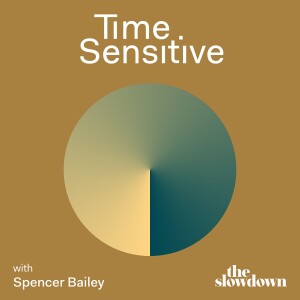
Trevor Paglen on Art in the Age of Mass Surveillance and Artificial Intelligence
 2021-09-22
2021-09-22
Trevor Paglen aspires to see the unseen. The artist explores the act of looking through various angles—such as how artificial-intelligence systems have been trained to “see” and categorize the world, or the disquieting sense of being “watched” by a security camera—and creates scenarios that frequently implicate viewers in the experience. At other times, he’ll take pictures of places that are typically kept far out of sight, including the rarely seen headquarters of America’s National Security Agency, or the Mojave Desert, home to numerous military facilities, prisons, and a former nuclear testing site. Paglen, who has a Ph.D. in geography from University of California, Berkeley, also thinks about the relationship between space and time, and how the associations a person makes while looking at something—be it an age-old landscape or a satellite in endless orbit around the Earth—are fleeting and constantly changing. By highlighting invisible frameworks that exist in the world, Paglen invites viewers to think about life’s inconspicuous, and often unsettling, realities.
Paglen, who is 47 and has studios in New York and Berlin, draws on science, technology, and investigative journalism to make his wide-ranging work. In one of his early projects, “Recording Carceral Landscapes” (1995–2004), he wore a concealed microphone and posed as a criminology student to document the interiors of California penitentiaries. For “The Last Pictures” (2012), he collaborated with materials scientists at M.I.T. to devise an ultra-archival disc, micro-etched with a collection of 100 images, and launched it into space on a communications satellite for aliens to find. More recently, his viral digital art project and app “ImageNet Roulette” (2020), which allowed users to upload photos of their faces to see how A.I. might label them, horrified many users with racist, sexist, or overtly stereotypical results, leading ImageNet, a leading image database, to remove half a million images.
Beyond his art practice, Paglen continues his preoccupation with perception. He studies martial arts, surfs, and composes music—activities that require constant, intense awareness. It all stems from a heightened consciousness of, and interest in, the concept of observation that he’s carried for nearly his entire life. “We’re all trying to learn different ways of seeing,” he says.
On this episode, Paglen discusses his deep-seated fascination with perception, talking with Spencer about the impacts of surveillance, deserts as sites of secrecy, and the value of trying to perceive forces that seem impossible to see.
Show notes:
- Full transcript on timesensitive.fm
- @trevorpaglen
- paglen.studio
- 04:54: “The Last Pictures” project (2012)
- 19:51: “Orbital Reflector” (2018)
- 29:48: Robert Smithson’s “Spiral Jetty” (1970)
- 42:53: Paglen’s thrash group, Noisegate
- 47:15: “Recording Carceral Landscapes” (1995–2004)
- 1:05:13: “ImageNet Roulette” (2020)
- 1:05:13: “Bloom” (2020)
More Episodes
Create your
podcast in
minutes
- Full-featured podcast site
- Unlimited storage and bandwidth
- Comprehensive podcast stats
- Distribute to Apple Podcasts, Spotify, and more
- Make money with your podcast
It is Free
- Privacy Policy
- Cookie Policy
- Terms of Use
- Consent Preferences
- Copyright © 2015-2024 Podbean.com






